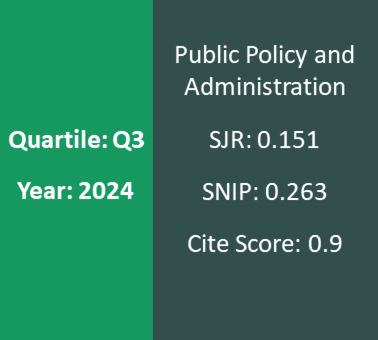Individual Income Taxation in The European Union:Whether the European Court of Justice Destroys a Steady Order?
Keywords:
Individual Income Taxation in The European Union:Whether the European Court of Justice Destroys a Steady Order?Abstract
In this article the author aims to reveal the legal content of the Fundamental Freedoms enshrined in the EC
Treaty, to analyze the relevant ECJ jurisprudence where the Fundamental Freedoms are interpreted in the direct
tax dimension and in such a way to emphasise the importance of the primary EC law to the individual income
taxation in the Member States.
When analyzing the ECJ jurisprudence in the sphere of individual income taxation, the author notes that the
Member States, being the source states for the taxpayers from other Member States, usually apply more favorable
tax treatment to their residents than to non-residents. For the purposes of establishing the discrimination of a nonresident
in such a case, it shall be clarified whether such a non-resident is in the same situation with a resident. In
this respect the ECJ distinguishes two types of national rules on individual income taxation: (i) the tax rules that
establish the tax incentives pertaining to “personal and family circumstances” of a taxpayer and (ii) the tax rules
that establish the tax incentives pertaining to the employment (business) income of a taxpayer.
The author notes that a non-resident and a resident are treated as being in the same (comparable) situation
with respect to the tax incentive pertaining to “personal and family circumstances” if non-resident receives “all or
almost all” his income in the source state and therefore is not able to benefit from the personal and family related tax incentives applicable in his residence state. Such a resident is often called a “virtual” resident. Therefore, it is
a source state, but not a residence state, that is obliged to apply the personal and family related tax incentives to such
a taxpayer. If the source state is applying the personal and family related tax incentives to its residents, however, it
refuses to apply such tax incentives to its “virtual” residents, then such a practice shall be treated as being discriminatory.
The famous ECJ case Schumacker is a good illustration of such a situation.
On the other hand, different rules apply to the incentives pertaining to the employment (business) income of
a non-resident. If both a resident and a non-resident belong to the tax jurisdiction of the source state, but such a
source state is applying income-related tax incentives only to its residents and refuses to apply the same incentives
to non-residents, then such a practice shall be treated as being discriminatory. In this case there is no need for a nonresident
to have a status of a “virtual” resident in order to be capable to apply for income-related tax incentives
(such a status is necessary only when a non-resident seeks for personal and family related tax incentives). The case
Gerritse serves as a good example of such a situation.
In his conclusions the author summarises the novelties introduced by the ECJ jurisprudence in the sphere of
direct tax law and makes his assessment on the compatibility of the individual income taxation system applied in
Lithuania with primary EC law.





